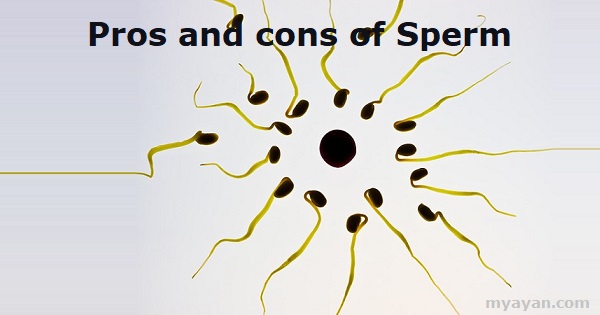The term sperm retention refers to retaining semen rather than ejaculating it. This modern-day practice is on the rise as an alternative fertility and reproductive health option for men and couples. But, like every other practice, there are both pros and cons of sperm retention you should be familiar with.
Retaining semen has been associated with many potential benefits which are physical, mental, and spiritual health. Here are some of the most commonly mentioned advantages of sperm retention.
Retaining semen can positively impact male fertility by improving the quality and quantity of available sperm. By prolonging its storage in the body before ejaculation, sperm cells are likelier to remain healthy, increasing their success rate when attempting conception.
Studies suggest that those who practice sperm retention may experience increased sexual performance, with enhanced arousal and increased libido.
There is evidence that sperm retention can lead to improved mood states, as semen contains several hormones which can affect the body's emotional balance. Retaining semen could help men to reduce symptoms associated with depression, anxiety, and stress.
Practicing sperm retention can help men to develop greater control over their ejaculation. This, in turn, may aid them in lasting longer during intercourse, helping improve sex life for both partners involved.
By retaining semen, men may increase the intensity of orgasm. This is because they will not have expelled all their available semen with one ejaculation and can experience multiple orgasms in a single session.
Although semen retention has adherents who believe in its advantages, it also carries potential risks and negative consequences. Here are some of the most frequently mentioned drawbacks of semen retention.
Epididymal hypertension is when a man becomes very sexually aroused but does not ejaculate. This situation is also called blue balls. This can be quite uncomfortable and cause intense pain and aching in the testicles. This problem can also lead to fluid buildup in the testicles, causing infertility. In some rare cases, it can even cause permanent damage to the reproductive system. All of these problems are associated with sperm retention, and this is why it’s not recommended for long-term use.
It is important to note that retaining semen for long periods could potentially cause some health issues. As it takes longer for the body to expel stored semen, men may experience discomfort, such as pain in their testicles or difficulty urinating. There may also be an increased risk of infection if bacteria accumulates inside the urethra during prolonged storage of semen.
By constantly storing semen instead of ejaculating, men can potentially decrease their production levels over time. This can, in turn, reduce the quality and quantity of sperm available, making it difficult for couples to conceive.
Retaining semen can create difficulties in having a satisfying relationship with a partner, as the person may prioritize their own sexual preferences over their partner's desires. This may result in strain and disagreements in the relationship.
Retaining semen may negatively impact mental health as some people experience increased anxiety, depression, or irritability. These effects may occur due to the buildup of sexual tension and frustration and suppression of natural sexual desires.
Conclusion
Sperm retention has both potential benefits and risks that you need to consider when deciding if it is the right way to lead a healthy life. If retained semen is not regularly ejaculated, men may experience some health issues, such as pain in their testicles or a decreased production rate. However, this practice has positive aspects, such as improved mood states and increased sexual performance, which could prove beneficial for couples looking to conceive. Ultimately, weighing the pros and cons of sperm retention is necessary for your fertility and reproductive health.

Although some people believe that holding back on ejaculating can positively affect health, there isn't much scientific evidence to support this. However, purposefully not ejaculating doesn't seem to negatively impact health either.
Not ejaculating for a prolonged period can result in various psychological issues. Individuals experiencing sexual dysfunctions hindering their ability to ejaculate may feel distressed and ashamed. Moreover, it may cause relationship difficulties since partners may become frustrated with such individuals.
To determine if semen is healthy, it should thicken and harden after ejaculation. A viscosity test in semen analysis is necessary to confirm. If semen appears significantly thicker than normal, one should seek medical attention and testing.
To retain semen, there are three methods you can use: abstinence, edging, or retrograde ejaculation. Abstinence means not engaging in any sexual activity, whether alone or with a partner. Edging involves having sex but not ejaculating. Retrograde ejaculation is another method where semen is retained by redirecting it back into the bladder.